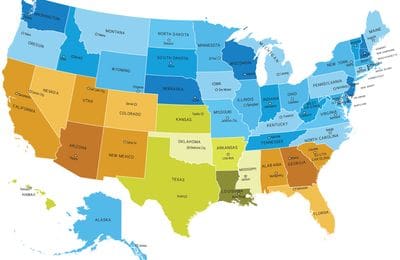What’s Your Car Accident Settlement Worth?
Find out for free in 60 seconds or lessHelping People Get Fair Compensation For Car Accident Injuries
Since 2015 we’ve been here to help people who have suffered injuries in car, truck, and motorcycle accidents of all kinds.

Car Accident Settlements

Motorcycle Accident Settlements

Truck Accident Settlements

Rear End Car Accident Settlements
Get The Car Accident Injury Compensation You Deserve!
Unfortunately, often times the result of a car accident has a large impact on your physical and financial livelihood. We aim to educate you about a wide range of topics that may affect your compensation for car accident injuries. Read our comprehensive guides on how to file a car accident claim, understanding car accident settlements, and filing a lawsuit against the at fault driver. We’ll examine actual car accident settlement amounts, pitfalls and mistakes to avoid, and learn when it’s a good idea to hire an attorney in order to maximize compensation for your car accident injuries.
Car Accident Injury Settlements

Whiplash Settlements
If you’re suffering from neck or cervical pain after being in an auto accident, we have information that can help you take the next steps. Learn what kinds of settlements you can expect from experiencing whiplash after a car accident.

Back Injury Settlements
Back pain is one of the most common injuries sustained after a car crash. Whether you are suffering from herniated disks or sciatica, our lawyers can work with your chiropractors and medical providers to ensure that you receive the settlement you need.

Head Injury Settlements
It’s very common to get headaches especially if you had a concussion as a result of a car accident. Whether or not you received physical trauma to your head during a crash, you can experience long term effects of a concussion after a car accident.
We help people who’ve been injured in car accidents get the proper legal information to get a fair car accident settlement, or file a lawsuit if the settlement offer isn’t fair. We provide you with guides, articles, videos and interactive tools to help you understand how to get fair compensation for your auto accident injuries. If needed, we can also connect you with a personal injury attorney in your area to determine how much your car accident settlement may be worth. All of our articles are written in a way that is easy to understand and digest for non attorneys.
Car Accident Settlement Tools & Resources
We’ve assembled a comprehensive library of resources to help you figure out how much compensation you may be owed in your car accident settlement.

Settlement Demand Letters

State Guides

FAQs

Filing a Car Accident Claim
Latest Articles On Car Accident Claims & Settlements
How Negligence Laws Affect Motorcycle Accident Settlements
In the context of motor vehicle accidents, negligence refers to a driver’s failure to operate a vehicle safely. This is an important designation when it comes to negotiating car accident settlements. It’s also important in a court case to determine fault and damages...
Common Causes of Motorcycle Accidents and Injuries
Motorcycles are rising in popularity as more people discover the thrill and the efficiency of two small wheels on the open road. With the surge in riders also comes a hike in accidents, however. Both the number of motorcycle crashes and the rate of motorcycle crash...
Whiplash Payout Scale for Grades 0-4
Whiplash is common in car accidents, especially rear-end collisions. Your head and neck are forcefully jerked back and forward by the rapid acceleration-deceleration combination, causing injury to the head, neck, and shoulders. Each auto accident is...
How Long Does a Car Accident Settlement Take?
Involvement in a traffic collision creates a difficult situation, which can be made worse by injuries and property damage. You may be legally entitled to monetary compensation. How long does a car accident settlement take? The answer is different for everyone, but...
How To Adjust to the Traffic and Transportation Culture of a New Area
Even within the same country, transportation cultures can be drastically different. For instance, in New York, the public transportation system is a lifeline for many residents, with the subway being the primary mode of transportation. The city's layout encourages...
The Safety, Pros, and Cons of Different Methods of Transit
There are pros and cons for the different forms of transportation people use every day. The choice of how to get to work or school, run errands, or take longer trips often depends on what modes are available. In densely populated cities, bikes, walking, and public...






